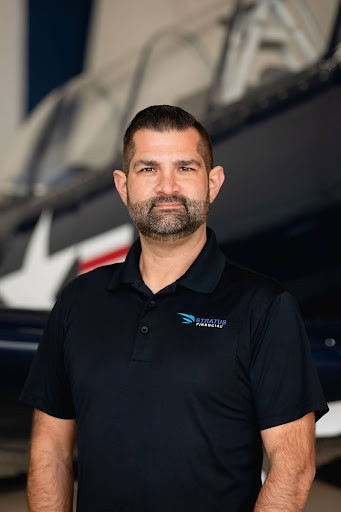From Shortage to Opportunity: Why the Growing Need for Pilots Makes Now the Best Time to Take Flight

The global pilot shortage is real, but according to Brandon Martini, co-founder and co-CEO of Stratus Financial, it should be seen as an opportunity rather than a crisis. In the United States, the shortage has eased somewhat compared to its peak in recent years, yet the long-term outlook tells a different story. Globally, demand is still climbing. Boeing's 2025 Pilot and Technician Outlook forecasts that airlines will need more than 660,000 new pilots by 2044, with over 119,000 of those needed in North America alone. Airlines are expected to ramp up hiring within the next three years, meaning that those who begin training now will be ready as demand increases.
"The U.S. has stabilized a bit, but we are seeing the shortage pick up across the world," Martini said. "That global demand will drive up salaries everywhere. It's the perfect time for aspiring pilots to start their training."
Several factors have converged to create the shortage. The most significant is a wave of retirements; by law, U.S. airline pilots must retire at age 65. Martini explained that COVID-19 made matters worse, as many pilots were forced into early retirement, and others who were training to enter the profession left the industry entirely to find work elsewhere. The cost of training remains another major barrier, with flight school in the U.S. averaging around $81,000 and collegiate programs often exceeding $200,000. Smaller, independent schools may be less expensive, but still require a substantial investment. "That's a huge barrier for most people," Martini said. "And that's exactly where Stratus comes in."
Stratus Financial was founded by aviators who understand both the passion and the financial challenge of becoming a pilot. The company offers financing solutions to students who might otherwise never be able to afford flight training. "Back in the day, you could only become a pilot if you had family wealth or were lucky enough to get hours from someone willing to take you under their wing," Martini said. "Today, we provide a pathway for talented, motivated people from all backgrounds."
For those willing to put in the work, the payoff can be substantial. According to industry data cited by Martini, new airline pilots can start with salaries of around $95,000, often just 24 to 36 months after beginning training. Over a full career, pilots can earn up to $13 million, putting them on par with, or even ahead of, the lifetime earnings of many doctors, who typically earn between $6.5 million and $10 million. "People look at the cost of training with apprehension," Martini said, "but the reality is that you can pay it off quickly if you secure a position with a major airline."
Another factor making now an ideal time to enter the industry is the removal of the college degree requirement by many major airlines. This change opens the profession to a broader pool of candidates, many of whom might otherwise have felt shut out. Martini emphasized that aviation is not just about the paycheck; it is about passion. Pilots must have perseverance, attention to detail, and the ability to stay calm under pressure. "Most people who make it through flight school are not just chasing a job," he said. "They are chasing a calling."
While the demand for pilots is undeniable, challenges remain. Aircraft shortages and delays in parts have temporarily reduced the number of available flights, slowing immediate hiring. Yet Martini is confident these issues will pass. "Over the next few years, we expect to see a strong surge in demand for qualified pilots," he stated. "For someone starting training today, that's a narrow but golden window to be ready just as those positions become available."
For Martini, the shortage is less a looming crisis and more a call to action. He wants young people, especially those in their early twenties and rethinking their career paths, to see aviation as a viable and rewarding option. "There's somebody out there right now who thinks becoming a pilot is out of reach," he said. "But they don't need to go into the military or have a college degree. If they have the passion and perseverance, the opportunity is real, and we are here to help them seize it."
For those ready to take on the challenge, the timing has never been better. With a deep understanding of the industry and the challenges students face, Stratus Financial provides more than funding; it offers a pathway for talented individuals to turn their passion for flight into a lifelong career.
© Copyright IBTimes 2025. All rights reserved.





















